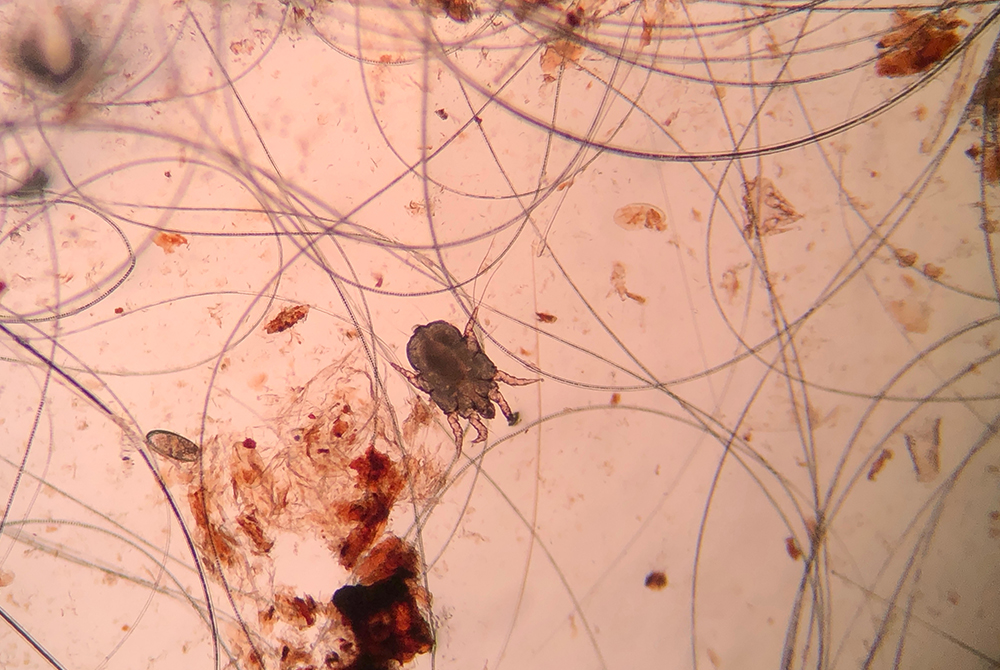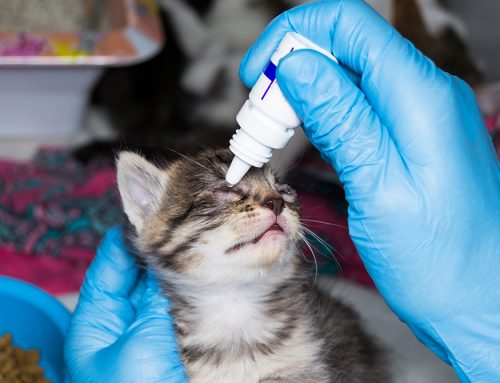Mission Veterinary Clinic
16915 San Fernando Mission Blvd, Granada Hills, CA 91344
Phone: 818-363-8143
missionvet.com
Urgent Care Facility – Walk-ins Only, No Appointments
Overview of Internal Parasites
Internal parasites are organisms that live inside your pet’s body, often within the intestines, blood, or other organs. These parasites can cause a range of health issues, from mild discomfort to serious illnesses, and they are commonly found in both dogs and cats. Regular veterinary care and preventive measures are crucial to keeping your pets safe from these hidden dangers.
Common Types of Internal Parasites
- Roundworms (Toxocara spp.)
- Roundworms are among the most common intestinal parasites in pets, particularly in puppies and kittens. These worms can cause a variety of symptoms, including weight loss, vomiting, diarrhea, and a pot-bellied appearance. They are typically transmitted through ingestion of contaminated soil, feces, or through the mother’s milk.
- Hookworms (Ancylostoma spp.)
- Hookworms are small, thin worms that attach themselves to the intestinal lining of pets, feeding on their blood. This can lead to severe anemia, especially in young or weakened animals. Symptoms may include lethargy, weight loss, and bloody stool. Hookworms can be contracted through ingestion or direct skin contact with contaminated soil.
- Tapeworms (Dipylidium caninum, Taenia spp.)
- Tapeworms are segmented worms that live in the intestines and are usually transmitted when pets ingest fleas or small rodents that carry the larvae. While tapeworms are not typically life-threatening, they can cause weight loss, irritation around the anus, and the presence of rice-like segments in the pet’s feces.
- Whipworms (Trichuris vulpis)
- Whipworms are intestinal parasites that are more common in dogs than cats. They reside in the large intestine and cecum, causing inflammation, diarrhea, weight loss, and dehydration. Whipworm eggs are very resilient and can survive in the environment for years.
- Coccidia (Isospora spp.)
- Whipworms are intestinal parasites that are more common in dogs than cats. They reside in the large intestine and cecum, causing inflammation, diarrhea, weight loss, and dehydration. Whipworm eggs are very resilient and can survive in the environment for years.
- Heartworms (Dirofilaria immitis)
- Heartworms are a serious and potentially fatal parasite that primarily affects dogs, though cats can be infected as well. Transmitted by mosquitoes, heartworm larvae travel through the bloodstream and mature into adult worms in the heart and lungs. Symptoms of heartworm disease include coughing, fatigue, and difficulty breathing.
Symptoms of Internal Parasites
- Diarrhea or soft stool
- Vomiting
- Weight loss despite a normal or increased appetite
- Lethargy or decreased activity
- Pot-bellied appearance, especially in puppies and kittens
- Visible worms or segments in the stool or around the anus
- Coughing or respiratory distress (in cases of heartworm)
Diagnosis and Treatment
Diagnosis of internal parasites typically involves a fecal examination, where a small sample of your pet’s stool is analyzed under a microscope to identify parasite eggs or larvae. In some cases, blood tests or imaging may be necessary to detect certain parasites like heartworms.
Treatment varies depending on the type of parasite but usually involves specific deworming medications. Your veterinarian at Mission Veterinary Clinic will recommend a treatment plan tailored to your pet’s needs.
Prevention Tips
- Regular Deworming: Administering routine deworming treatments as recommended by your veterinarian.
- Flea Control: Preventing flea infestations reduces the risk of tapeworms.
- Clean Environment: Regularly clean your pet’s living areas and remove feces promptly to minimize exposure to parasite eggs.
- Annual Testing: Regular fecal exams and heartworm testing are essential to catch and treat infections early.
Conclusion
Internal parasites are a significant health concern for pets, but with regular veterinary care and preventive measures, you can protect your pet from these harmful organisms. If you notice any signs of parasitic infection, please visit Mission Veterinary Clinic as soon as possible for a thorough examination and treatment.
For more information or urgent care needs, visit us at Mission Veterinary Clinic. We are open every day, and we see patients on a walk-in basis only.
Mission Veterinary Clinic
Your Pet’s Health is Our Mission
16915 San Fernando Mission Blvd, Granada Hills, CA 91344
Phone: 818-363-8143
Open Daily: 9 AM – 11 PM










Leave A Comment